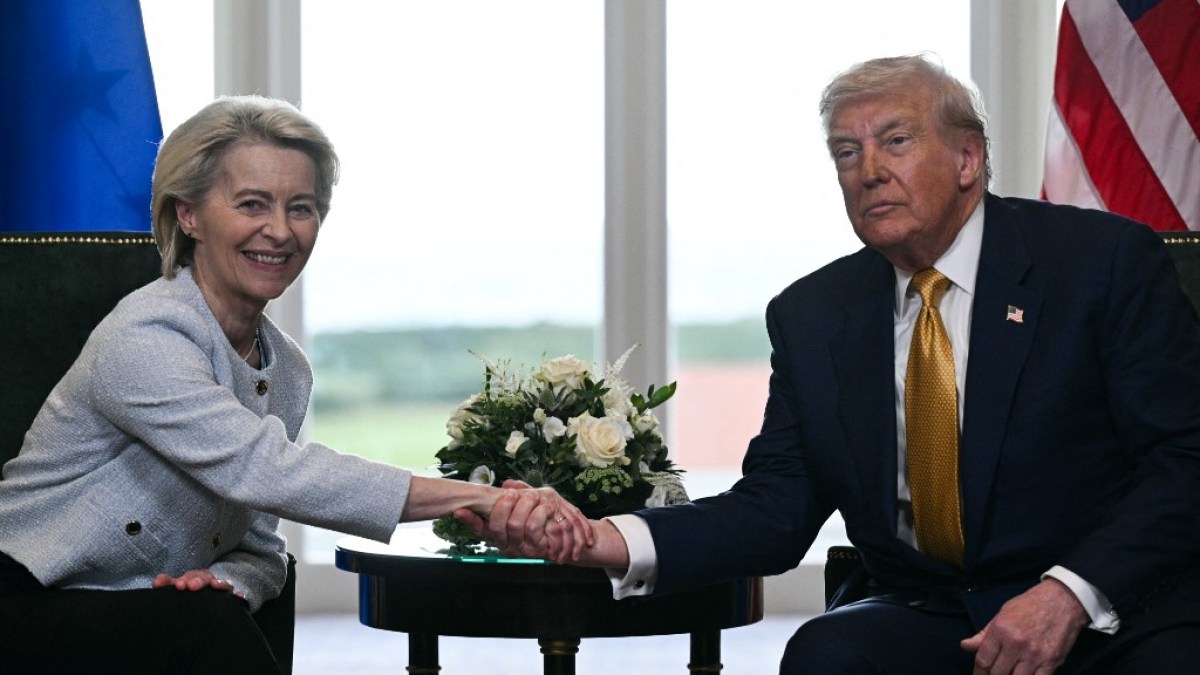MEPs call on European Commission to drop energy purchase promise in EU-US trade deal
Published on 15/09/2025 – 15:34 GMT+2
•Updated
15:53

ADVERTISEMENT
A French liberal MEP has gathered signatures from 20 other lawmakers for a letter seen by Euronews calling on the European Commission to review its commitment made under the EU-US trade agreement to purchase US energy.
In the document— soon to be sent to Commission President Ursula von der Leyen, Trade Commissioner Maroš Šefčovič, and Energy Commissioner Dan Jørgensen—the MEPs led by Christophe Grudler of Renew call on the EU executive to reconsider its pledge to buy $750 billion worth of US energy products over the next three years.
These products include liquefied natural gas (LNG), oil, nuclear fuels, and small modular reactors (SMRs). The signatories argue the deal will undermine the EU’s climate goals, industrial competitiveness, and strategic sovereignty.
“Increasing LNG imports from US shale gas directly undermines our climate agenda and our methane emissions regulation,” the letter says, adding: “LNG is highly polluting when liquefied, shipped across the Atlantic and regasified. Such dependence is a climate time-bomb.”
The initiative was launched by Christophe Grudler, a French MEP from the liberal Renew group.
The letter also warns that beyond energy concerns, the deal risks exposing the EU to “political blackmail”, the US demanding changes to EU climate policies, including the Carbon Border Adjustment Mechanism, under which the bloc will apply levies on the carbon footprint of foreign imports from 1 January 2026.
The energy purchase commitment forms part of the EU-US agreement reached over the summer.
Some MEPs view the arrangement as deeply unbalanced, given that the US continues to impose 15% tariffs on EU goods, while the EU has agreed to make major investments in the US, including in the energy and defence sectors.
‘Economic imbalance’
In their letter to the Commission, MEPs also slam what they describe as the “economic imbalance” created by the pledge to purchase $250 billion’s worth of energy over three years.
The letter describes this figure as “astronomical” adding: “To put this in perspective, the entire Competitiveness Fund proposed in the MFF amounts to €362 billion over seven years. How can we ask European companies to massively buy from the US while urging them to strengthen our competitiveness at home?”
The inclusion of US small modular reactors in the deal has also raised concerns among MEPs.
“At a time when the EU is building its own SMR supply chain, opening the door to US competitors is total nonsense.”
They further stress that commercial decisions “should remain the prerogative of companies, not be preempted by political pledges.”
